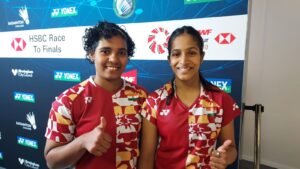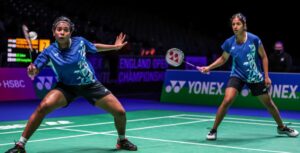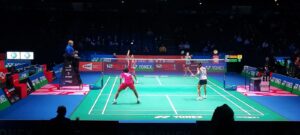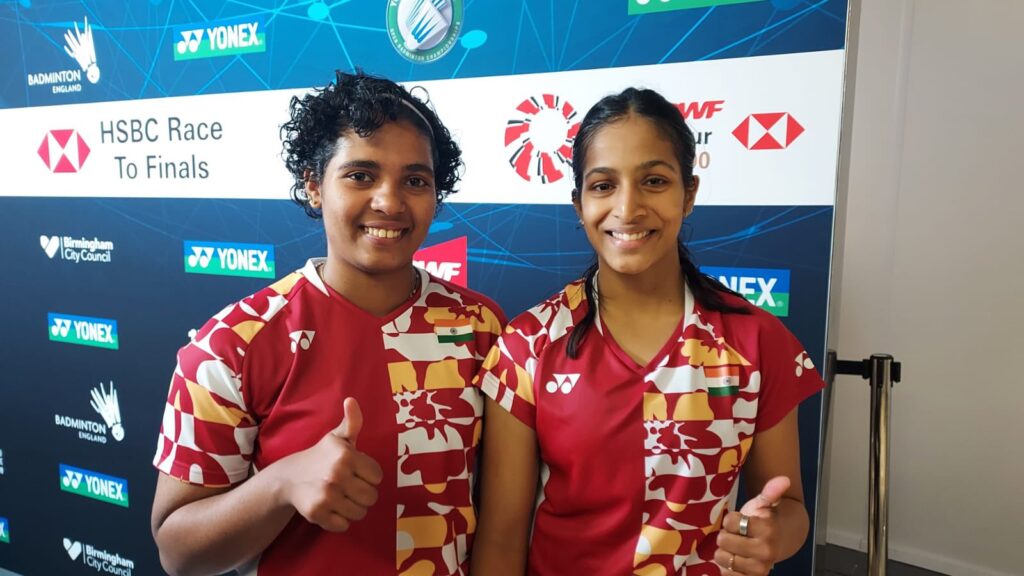
G Rajaraman
A visit to the BWF Badminton World Rankings lists can fill Indian hearts with pride. India has 12 men and women each in the top 100. Besides six men’s pairs and seven women’s doubles team find places in the top 100. And what’s more 10 Junior men and 15 Junior Women are perched in the top 100.
It does sounds wonderful, isn’t it? All is well and hunky-dory, isn’t it?
Yet, when you realise that only four Indians have featured in the finals of 21 BWF events this year, things do not look as rosy. Tanya Hemanth and Tasnim Mir played an all-Indian women’s singles final of the Iran Fajr International and Trishna Hegde and Khushi Thakkar won the women’s doubles title in the Uganda International.
One is not a doomsday advocate, but despite so many players in the top 100, the prognosis is not exactly rosy. Surely, not for the Asian Games to be held in Hangzhou, China, from September 23 to Oct 8 this year if not for the next year’s Olympic Games – where India will look for a fourth successive medal after London, Rio de Janeiro and Tokyo.
The Olympic Games competition is some distance away, but the Asian Games is looming. It is not as if the players do not attach it significance because it does not get them BWF ranking points. Back in 2018, PV Sindhu won a silver and Saina Nehwal a bronze in the women’s singles competition in Jakatra. India will be hard pressed to repeat the multiple medal effort now.
Let us take start a stock-taking of the Indian challenge with a visit to a not so happy place – the 2023 formbook.
It can be said that the run of the World No. 17 Women’s Doubles pair of Treesa Jolly and Pullela Gayatri Gopichand into the semifinals in All-England Open in Birmingham last week came as a breath of fresh air after two second-round appearances and a first round defeat earlier in the year. Theirs has been the best showing for India in BWF tournaments.
Satwiksairaj Rankireddy and Chirag Shetty, now sixth in the BWL Men’s Doubles World Rankings, started the year brightly with a semifinal appearance in the Malaysia Open but have stumbled twice in the second round subsequently.
Among the men, World No. 9 HS Prannoy and No. 19 Lakshya Sen have crossed the second round only once each in BWF tournaments this year. World No. 22 Kidambi Srikanth has made it past the first round but once in four starts in 2023.

World No. 9 PV Sindhu, recovering from an ankle injury sustained in the Commonwealth Games in Birmingham last year, has not won a match in three starts of the BWF World Tour this year. Sindhu has not crossed the second round in the three events she has competed in this year. Saina Nehwal, World No. 27, has had better luck, winning two first round matches.
India’s best Mixed Doubles pair of Ishaan Bhatnagar and Tanisha Crasto, ranked World No. 25, has won one match in four this year.
Are there results an outcome of poor backing to the players from the Badminton Association of India and the Ministry of Youth Affairs and Sports? Most certainly not. With six players in Target Olympic Podium Scheme’s Core Group and 17 in Development Group, there cannot be a dearth of support.
So, what could possibly have gone wrong that the results have not been commensurate with the effort or the will? It appears that some of the players have started charting their own journeys, perhaps bypassing the National Chief Coach Pullela Gopichand. Of course, he has been categorical that he cannot be a one-player coach.
The BAI trials to pick the Asian Games team in the second week of April and the roadmap it has for the Asian Games will offer greater insight and help change the prognosis. The Selection Committee has decided to exempt players in the top 20 of the BWF World Rankings exempt from taking part in the trials so that they can focus on the BWF Tour events.
Prannoy and Lakshya Sen (men’s singles), PV Sindhu (women’s singles), Satwiksairaj Rankireddy and Chirag Shetty (men’s doubles) and Treesa Jolly and Pullela Gayatri Gopichand (women’s doubles) are eligible for this exemption as things stand now. There are 13 other slots (six men, seven women) to be filled in the 20-member team.
But if India is not to be left banking only on Sindhu’s unflappable temperament in big-ticket competitions or one of the doubles pairs finding its mojo in the Asian Games, the best brains in the country need to come together and chart out course-correction methods now. It will serve no purpose to live in denial.
On a wider note, the absence of a sustained junior development programme over the past few years has now come to hurt Indian badminton. It is time India pays greater attention to establishing a system and creating the culture that Gopichand talks about, especially with the Federation having greater say in the management of players’ careers than it has at the moment.

At another level, Badminton coaches who have completed BWF Level 1 and Level 2 coaching courses since their inception in 2012 and 2013 focus a great deal on their own academy rather than buy in to the creation of an assembly line that can create world beaters. It is time for Badminton Association of India to get them together under its umbrella for greater benefit.




